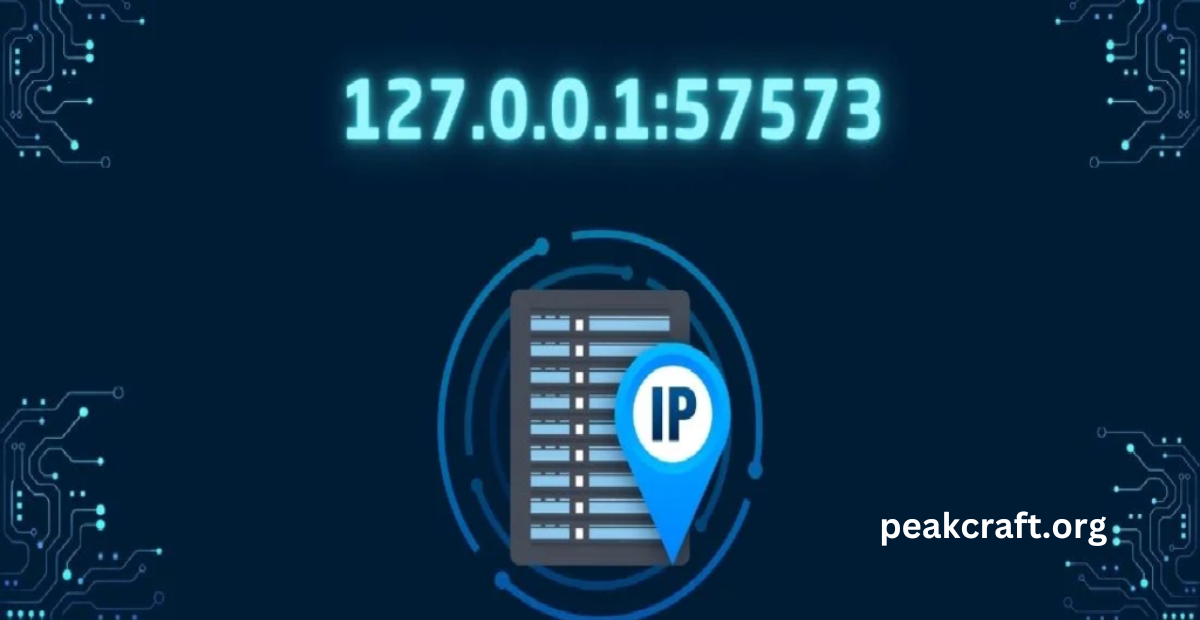Efficiency is key within the realm of software development. It’s in human nature and developers, as one of the first minds among humans devise tools for making their work efficient and find better ways to achieve a faster development process. One of these priceless gems is the ability to paste localhost addresses i.e. 127.0.0.1:57573 Numbers that, by the look of it are random, yet have great potential to be an indicator for a way more efficient development.
In this article, We provide an overview of localhost addresses and why 127.0.0.1s are useful specifically with a quick look at specific use cases (practical scenarios) for the best practices.
Understanding Localhost 127.0.0.1:57573
But before we go into 127.0.0.1:57573, let’s understand what are localhost addresses. In the field of computer networking, localhost belongs to the loopback interface. A virtual network area you use when some process wants to talk with another using nothing and nobody. It is denoted by the IP address 127.0.0.1. 57573 represents the port number, which is how specific ports or services running on the same local host are identified.
Key Features of Localhost 127.0.0.1:57573
1. Isolation and Control -Developers can build their applications using Localhost addresses. This isolation prevents conflicts with other running processes and grants us more control over the testing/debugging process. Verifying a build helps to ensure that changes made in the application do not affect any other system or network.
2. Rapid Iteration and Testing: You can use localhost addresses to iterate and test your code more efficiently. Make changes rapidly, restart applications, and get feedback without relying on external dependencies or complicated network setups. This quicker feedback loop helps to make sure, we are more productive and better at solving problems.
3. Easy Debugging: When working with these addresses debugging is easy on localhost. Developers use this to trace their code with debugging tools on their local machines. This localized approach avoids the complexities of remote debugging and streamlines troubleshooting.
4. Privacy & Security: Localhost enhanced Security & a low level of Internet. This ensures less chance of data breach or unauthorized access as the communication is within the local machine only. This is important when dealing with data that should not be in the wrong hands or it could lead to possible illegal activities.
Also Read – Doublelist Subscription Plans Explained
Enriched Features of 127.0.0.1:57573
Better Security: Using 127.0.0.1 takes your development environment off the network from other external threats to provide lesser chances of unauthorized access and similar vulnerabilities.
Custom Port Flexibility – With port number 57573, the developer can run multiple applications simultaneously without any conflict and also define custom or temporary connections.
Easy Testing: With Localhost, testing an application becomes fast and prodigious without bothering the live environment or external servers.
Isolated Environment: Using 127.0.0.1 will assure isolation and keep your services running in a controlled environment. It makes it easier to debug or monitor applications as by default each process gets its socket.
Cost Saving: Building and testing in localhost removes the necessity of catering external hosting services. Which resultantly leads to cost savings in both expense and resource
Utilization.
Limitations with 127.0.0.1:57573
1. Common errors, namely port conflicts: If another application already occupies the specified port(57573), this will spit out an error or even stop you from starting your app.
2. Firewalls: Firewalls, whether at the system or application level might be preventing communication with local host addresses and restricting incoming/outgoing traffic.
3. Network Configuration Problems – If you have the wrong network settings or misconfigured interfaces, there may be a chance that some localhost properties won’t work. It will obstruct an application from binding to the address of your choice.
Applications and Best Practice
Web Development: localhost addresses are vital for web development. Developers can use this to set up local servers for their websites and applications, verifying their functionality and compatibility before deployment.
API Development: Localhost addresses are used while creating APIs to test and debug the API endpoints in a controlled environment. It allows developers to test and analyze the response of an API by simulating client requests so they can identify and fix any problem that may arise.
Microservices Architecture: In micro-services-based applications, localhost addresses are important to, develop and debug each service independently. Such a technique enables separate development and deployment making it scalable, and maintainable.
Game Development: Game developers do it to test game logic, graphics, and network interactions against a controlled environment. This process should allow you to catch and correct some errors before your game reaches a wider audience.
Configuration and Management- Localhost addresses are used to configure or manage many things in a dev environment e.g. database connections, network settings and app-specific configurations, etc.
Final Thought 127.0.0.1:57573
Localhost addresses, specifically 127.0.0.1:57573, are useful for efficient development work. Using the advantages of isolation, rapid iteration, simple debugging, and security are ways in which developers can speed up development. From web developers, API architects, and game designers to any software projects you may be working on. Adopting localhost addresses would take productivity in your development experience a notch higher.
Also Read – jynxzi age | Understanding Wuvisaaft Charge on Your Bank Statement


